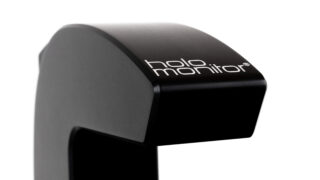PHI Enters Biomanufacturing Partnership with Wake Forest Institute for Regenerative Medicine
Phase Holographic Imaging (PHI) and Wake Forest Institute for Regenerative Medicine (WFIRM) recently signed a letter of intent outlining a biomanufacturing initiative to make indispensable imaging techniques available for regenerative medicine and large-scale production of cell therapies and organs.

Based on PHI’s non-invasive HoloMonitor technology, the two entities jointly aim to develop imaging techniques for assessing cell culture quality in industrial biomanufacturing. The initiative is possible via WFIRM’s collaborative work with the RegeneratOR Test Bed program. The RegenMed Development Organization (ReMDO), a non-profit organization dedicated to accelerating the discovery and translation of regenerative medicine therapies, manages the RegeneratOR program.
Together with technology partners like PHI, the RegeneratOR Test Bed seeks to assist regenerative medicine start-ups and growth companies with new and emerging technologies through access to advanced biomanufacturing equipment, talent and programs.
WFIRM plans to provide regenerative medicine infrastructure and expertise, whereas PHI provides imaging expertise together with associated resources. Legally, the Wake Forest School of Medicine and its Public Health Sciences division sign the letter of intent on behalf of WFIRM.
“The implementation of non-invasive imaging in clinical biomanufacturing would assure product consistency, save money by identifying deficient products early in the production process and assure product safety.”
— Joshua Hunsberger, PhD, Chief Technology Officer at ReMDO
Regenerative medicine is at the cusp of huge breakthroughs that would create a new paradigm for healthcare — one that could potentially cure even the most challenging diseases. Most conventional pharmaceuticals merely hide the symptom rather than cure the disease. In contrast, regenerative medicine rejuvenates and cures disease by improving the body’s natural ability to heal and resist future disease by transplantation of engineered cells or organs. The unique characteristics of regenerative medicine will inevitably change the future role of pharmaceuticals and how we use them in healthcare.
“Cells are the raw material of regenerative medicine, regardless of whether the end product is cells, tissue or bioprinted organs. The necessity of non-invasive cell quality control in regenerative medicine creates unprecedented business opportunities for PHI’s imaging technology in a market expected to rival the pharmaceutical market in size and importance to public health.”
— Peter Egelberg, CEO of PHI
WFIRM Videos Explaining Regenerative Medicine
- Tour of WFIRM, Wake Forest University School of Medicine, 2020
- Printing a human kidney, TED Talk, 2011
About
The Wake Forest Institute for Regenerative Medicine (WFIRM) is recognized as an international leader in translating scientific discovery into clinical therapies, with many world firsts, including the development and implantation of the first engineered organ in patients. Over 400 people at the institute work on more than 40 tissues and organs.
The RegenMed Development Organization (ReMDO) is a non-profit organization with a mission to deliver on the promise of regenerative medicine. It promotes large-scale biomanufacturing by conducting applied research aiming to make indispensable biomanufacturing technologies affordable and practical.



